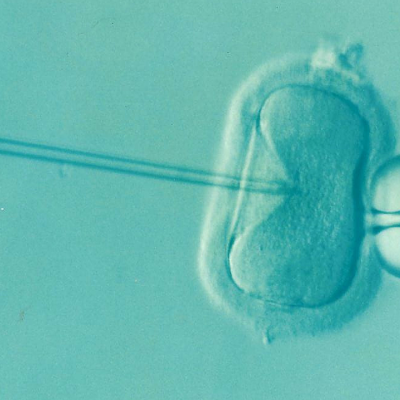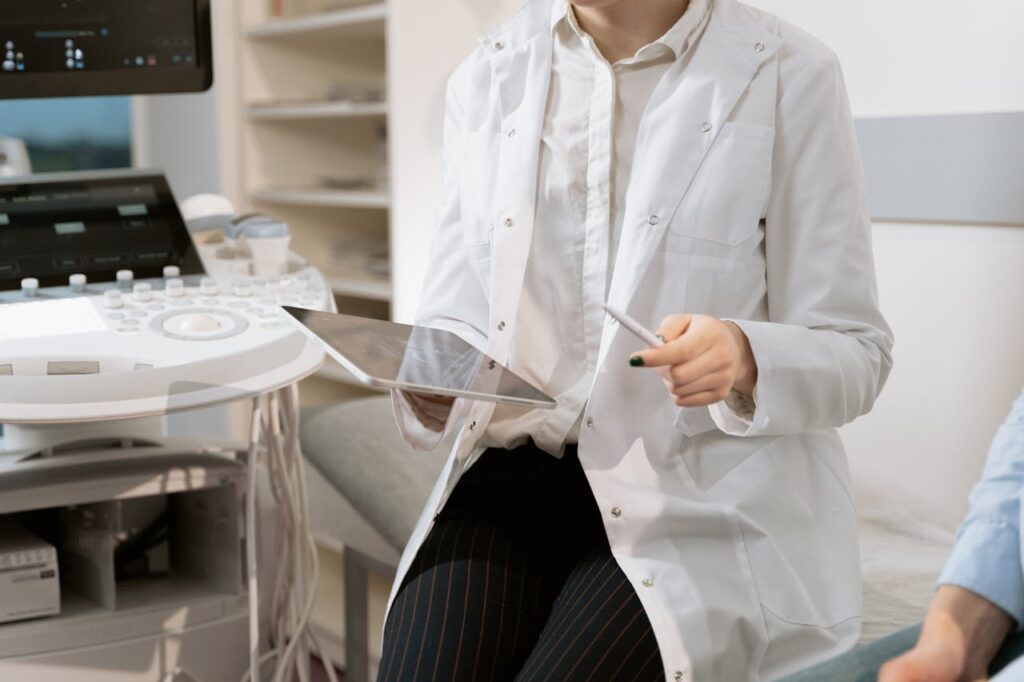
What Are Androgens?
Both men and women produce the hormone testosterone. Testosterone and several similar related hormones are known as androgens and are vital to the normal function of the female reproductive system especially the normal development of follicles and eggs in the ovary..
Why are Androgens recommended?
The use of Androgen treatment in women is based on observations in women and on experimental animal studies.. Women with lower levels of testosterone are less likely to achieve pregnancy than women with higher levels and also respond less well to standard ovulation inductions, it is also known that androgen levels decrease with age, and this is especially true in women who’s Studies in non-human primates suggest that pre-treatment with androgen increases the ability of the cells around the egg to respond to to the hormone that grows the follicles containing eggs (FSH). Androgen pre-treatment in monkeys promotes development of extra eggs within the ovaries and increases the number of small follicles within the ovaries.. All of these findings are consistent with the hypothesis that androgen pre-treatment in women increases the number of eggs available for retrieval with IVF in women with decreased ovarian reserve. In one study it was found that low levels of the hormone testosterone on day 3 of ovarian stimulation was associated with a poorer outcome to treatment (1)
What androgens are used in fertility treatment
There are two main androgens that have been used and studied in assisted conception treatment , these are Dehydroepiandrostenendione or DHEA and testosterone.
Dehydroepiandrostenendione (DHEA) Supplementation
DHEA is an abbreviation for Dehydroepiandrosterone, This is a naturally occurring hormone produced primarily in the adrenal glands (glands on top of the kidney). DHEA is also produced in other parts of the body including the testicles, ovaries, and brain. After production, the bloodstream carries DHEA to tissues and cells. Some of it is converted to sex hormones testosterone and estrogens.
Recently DHEA has been recommended as an adjunct to fertility treatment for patients with diminished ovarian reserve, this can be a natural process through ageing especially for women in their 40s or can be due to premature ovarian ageing in younger women (this can occur in up to 10% of the population).
Studies have shown that in patients with diminished ovarian reserve there is a significant increase in eggs retrieved from stimulation of the ovaries, with better quality embryos, higher pregnancy rates and lower miscarriage rates.
Studies have shown that DHEA is beneficial in patients with diminished ovarian reserve, this includes ladies who:
- Are over 40 years of age
- Have an AMH (anti Mullerian Hormone) level significantly lower than expected for Age , or <8pmol/l
- Have a significantly elevated FSH ( Follicle Stimulating Hormone) level for age, level >12
- Have had previous poor response to ovarian stimulation (low egg yield, poor fertilisation, poor embryo development and quality)
For levels of AMH and FSH indicating possible diminished ovarian reserve for age See appendix A.
There is no evidence of benefit of DHEA supplementation in ladies who do not have diminished ovarian reserve or premature ovarian ageing.
Since 2010 there have been growing number of studies worldwide, including a number of controlled studies (2,3) that have confirmed the benefit of supplementation with DHEA prior to Assisted Conception treatment, with some other studies showing an improvement in natural conception as well as pregnancies with very low AMH levels(4)
There is significant evidence from studies including a couple of hundred patients supplemented with DHEA during IVF that have had
- increased number of eggs retrieved and therefore
- increased number of available embryos to transfer and
- improved quality of embryos transferred.
There is some evidence that DHEA supplementation could:
- increase the number of chromosomally normal embryos,
- improve the clinical pregnancy rate
- improve live birth rate
- increase spontaneous conceived pregnancies and reduce miscarriage rate
There is evidence that supplementation with DHEA could significantly increase your AMH value which correlates with the ovarian reserve and the response to treatment.
As DHEA is an abundant naturally occurring hormone, the side effects are mild with the most common side effects noted being related to an increase level of serum testosterone (male hormone) concentrations. Therefore there is a small risk of having male hormone side effects like acne (on the face, chest or the back), oily skin, increased facial hair growth, increased perspiration and weight gain. There is an even lower chance of having mild hair loss and deepening of the voice. These side effects generally disappear when DHEA is discontinued. Other possible side effects are menstrual irregularities, irritability and restlessness.
There have been some reports where people who take large doses of DHEA (higher than proposed for your own treatment) can have irregular heartbeats or palpitations. If you have any of those symptoms please contact us and stop the medication immediately. At higher doses than used for fertility supplementation, significant side effects have been observed (e.g. blood clots).
Women with a personal history hormone related disorders (like history of breast or uterus cancer, endometriosis, fibroids) should not take DHEA. It could cause significant complications to patients with a history of head injury, diabetes, high cholesterol, thyroid disorders, other hormonal conditions or liver disease. If you have any medical problem or are taking any medications (like drugs for depression, blood pressure medications, steroids, diabetes medications, insulin) please let us know.
Some non fertility trials have shown some potential additional benefits to DHEA supplementation in women including, improvement in memory, energy, libido, concentration and general wellbeing.
For a full list of side effects and possible drug interactions
https://www.nlm.nih.gov/medlineplus/druginfo/natural/331.html
The dose used in most studies and therefore recommended has been 75mg of DHEA per day taken for at least 3 months prior to fertility treatment. The commonest tablet available is 25mg and should be taken three times daily.
The beneficiary effects from DHEA become apparent after 2-4 months of supplementation. You should continue the tablet until the night of the triggering injection for IVF (e.g.Pregnyl/ Ovitrelle).
In the USA it is considered a food supplement and available over the counter but in the UK this is not the case and, as it is not a licensed drug, it cannot be prescribed through pharmacies in the normal way. This drug can be purchased through reputable health-food retailers. DHEA is classified as a naturally occurring hormone precursor and is treated as a health supplement; it is therefore available over the counter or via the internet
Visit our dedicated DHEA supplementation page for further information or contact us now to discuss this treatment option.
Testosterone Supplementation
For patients with significantly decreased ovarian reserve there is evidence that the levels of naturally occurring androgens/ testosterone are much lower and that additional supplementation with testosterone is required to produce a more normal hormonal balance at the time of ovarian stimulation.
Unfortunately all the evidence for benefit of testosterone supplementation comes from very small studies or from pooling the data from many smaller studies ( a meta analysis). In one small study of only 25 patients with previous multiple poor responses to ovarian stimulation there was a 5 fold increase in retrieved oocytes(5) In the largest study of 225 patients who had previously responded poorly there was an increase number of eggs and embryos created in the patients supplemented with testosterone and a higher pregnancy rate, however the pregnancy rate per embryo transferred was not different suggesting that whilst it may improve the recovery of eggs it does not improve the quality of embryos(6)..
The evidence for benefit for Testosterone is only present in patients with very diminished ovarian reserve, AMH < 1 or when patients who have had a previous cycle of treatment with DHEA supplementation have had a poorer than expected response.
The treatment that we use is patch that has been regularly used for long term supplementation for women who have experienced the menopause after the surgical removal of their ovaries, As such the dose is lower than normal patches and is designed for long term use without any significant side effects. As this supplementation is only used for the 2-3 weeks leading up to your treatment we would not expect any side effects other than occasionally irritation to the skin at the application site in sensitive individuals.
Testosterone supplementation used to be given with a specially designed patch that was at a dose that was suitable for prescribing to women. Unfortunately this patch is no longer available and instead supplementation is given using gel designed for male use. This requires very careful prescribing and use and you will be advised carefully by your clinician.
It is recommended that the testosterone supplementation is taken for a minimum of 5 days prior to starting ovarian stimulation.
Testosterone supplementation is only available on prescription, If your clinician feels that supplementation with testosterone before your fertility treatment is advised you will be issued with a prescription at the same time as your other fertility drugs.
References
- Association of basal serum testosterone levels with ovarian response and in vitro fertilization outcome. Quin Y et Al. Reprod Biol Endocrinol 2011 Jan 20;9:9.
- Update on the use of dehydroepiandrosterone supplementation among women with diminished ovarian reserve. Barad DH, et al, J Assist Reprod Genet 2007;24(12):629-34.
- Miscarriage rates after dehydroepiandrosterone (DHEA) supplementation in women with diminished ovarian reserve: a case control study. Gleicher N, et al Reprod Biol Endocrinol 2009;7(7):108.
- Live birth chances in women with extremely low-serum anti-Mullerian hormone levels. Weghofer A, et al, Hum Reprod 2011;26(7):1905-9.
- Pretreatment with transdermal testosterone may improve ovarian response to gonadotrophins in poor-responder IVF patients with normal basal concentrations of FSH . Balasch et al. Hum Reprod 2006;21(7):1884-1893
- Effects of transdermal testosterone in poor responders undergoing IVF: systematic review and meta-analysis..Gonzalez-ComadrenM et al Reprod Biomed online. 2012 Jul 26 pii S1472-6483
Appendix A
| Levels of AMH indicating age specific decreased ovarian reserve | |
| Age | AMH less than pmol/L |
| 20-24 | 11.9 |
| 25-29 | 8.4 |
| 30-34 | 6.8 |
| 35-39 | 5.5 |
| 40-44 | 0.7 |



